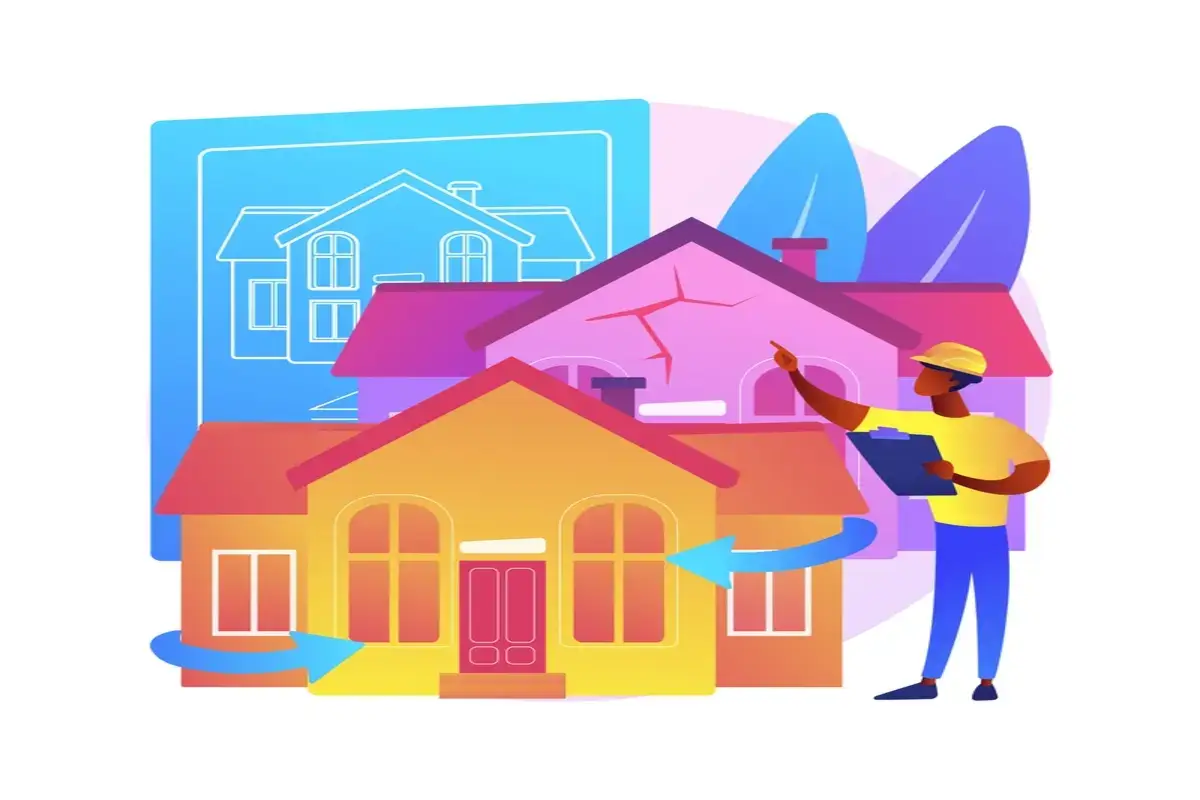Before you say ‘home sweet home’, make sure you’re not walking into a homeowner’s nightmare. Every creak, crack, and leak tells a story – one that could save you from a costly mistake.
Being a homeowner is exciting, but there are certain responsibilities that come with it. One of those being the responsibility of maintaining your home to its finest so that your investment lasts for years.
It’s important to be aware of red flags that can be found during home inspections. They can help you care for your property and deal with major issues.
At some point, you might think these are small issues. But, never underestimate those as they can later turn into significant problems, affecting your home’s condition and worth.
So, read on to understand the major red flags found during the home inspection.
Foundation and Drainage
Usually, homeowners think that their home’s foundation is intact. But that’s not always the case. You might not know, but a potential problem might be lurking in your foundation.
And we’re talking hundreds of dollars for dealing with major foundational issues. So it’s better to act before the issue surprises you and prevent you from getting such unwanted surprises.
A foundation envelopes your home and shields the interior. Whether your home has a loosely fixed foundation or cumulative drainage system, eventually, it will lead to a crack in the structure. Well, the issues list is extensive. It doesn’t just end at the structural cracks. A problematic foundation can also lead to structural instability and uneven floors.
All of these are significant issues that require extensive remediation. Of course, you can’t always afford that, and neither do you want to, right?
Likewise, drainage issues also raise the red flag that you can see from a distance. These can result in water intrusion, moisture damage, and mold growth. Not only does this compromise your home’s structural integrity, but it also poses significant health risks.
Mold
Another red flag that inspectors can glare at from afar.
When there’s mold in your house, there’s also a musty odor. Not to forget the black patches and discoloration on the wall.
These are obvious signs of a mold problem in your house. But most of the homeowners, instead of attending to this issue, choose to neglect it. Until it becomes a reason for them to take Aspirin every day.
During the home inspection, inspectors identify mold growth – indicating excessive moisture levels within the property.
There could be various reasons for mold growth, ranging from leaks to water intrusion. And if you think that mold is just about musty odors and discoloration, you’re mistaken. It’s more than that. It poses health risks that are especially triggering for the ones with respiratory conditions or issues.
Furthermore, mold can compromise your home’s structural integrity by deteriorating building materials like drywall and wood. No wonder it’s a red flag.
Electrical System Problems
In the U.S., electrical fires are a major threat. Approximately 24,000 electrical fires occur every year in the country.
Considering these facts, electrical system problems are the biggest red flags in home inspections. They not only lead to electrical fires but also increase the risk of shock.
Plus, improperly installed or malfunctioning electrical components are the reason for power outages. Eventually, this affects your home’s comfort and functionality.
Inspectors pay close attention to the signs of electrical issues when conducting inspections. Examples of such signs are:
- Flickering lights
- Warm outlets
- Tripping circuit breakers
Don’t try to paint this red flag white by ignoring these issues. Address them promptly to ensure your property’s safety and functionality.
Old Plumbing
Maine is a place with a rich history of residential homes. Some of those dating back over 200 years. But, with this history comes a warning, too.
If you’re residing in one of such old homes, there is a high chance that the house’s major systems are old. One of the main examples is the plumbing system.
An old plumbing system involves faulty pipes that send warnings from under the floor and behind the walls. The solution isn’t simple. You can’t just “fix” the issue, as it will cost an arm and a leg.
However, sometimes, the issue persists as a blocked pipe, which seems minor at first. But it might extend to a major one another time.
The inspection process involves the inspector looking for clogs and other signs. If they find a problem within the pipe, sink, or drain, that’s not something to worry about. These issues are easier to fix. However, they might indicate a bigger problem on the go.
Pests
Maine is one of the pests’ favorite places during the summer months. However, this doesn’t mean the other months are safe. Unwanted intruders like ants, mosquitoes, ticks, wasps, etc., can still barge into your home in other seasons.
When it comes to home inspections, identifying pests is one of the major goals for home inspectors.
Even though the issue is most common in Maine, its severity varies from property to property. One home might have a few bugs, while the other has an infestation.
You can move along with DIY fixtures when there are just a few bugs. But, if your home is experiencing an infestation, it’s better to call professionals to handle the issue. We emphasize this because a pest infestation can also result in structural damage. And surely, this isn’t good news for any homeowner.
Old Roofing
Oh! How can we miss this one of the reddest red flags in home inspections?
We discussed the historical side of Maine’s residential properties. Now, there’s another concern with these properties – old roofing. And there are various reasons this should add to your concerns.
You should take this red flag VERY seriously, especially under these three conditions:
- If the roof is not replaced in more than 20 years
- If the roof looks degraded
- If you don’t have any record of how or when the roof was replaced
Surely, replacing a roof is expensive. But what’s worth more than the dollars is the safety of your household.
So, once the home inspector identifies issues with your roof, it’s time to pay close attention to it. This might translate to damage to your home’s interior.
Conclusion
In conclusion, there might be a long list of red flags in home inspections. But remember, it’s never too late to turn these red flags green.
Owning a property is easy. What’s difficult is taking care of it. With home inspections in place, this task becomes relatively easy. Or shall we call it responsibility?
From foundational to roofing issues, inspectors play an important role in identifying issues within your property. So, it’s better to prioritize their recommendations and address each of these issues as effectively as possible.
If you’re looking for a reputable home inspection company, you can always reach out to Main Choice Inspections. We are the ideal choice for every Maine homeowner. Schedule an inspection with us, and make your homeownership journey hassle-free.


